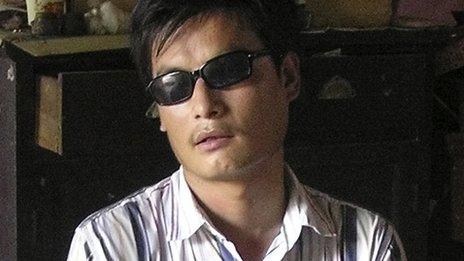Julian Assange urges US to end Wikileaks 'witch-hunt'
- Published
- comments
Mr Assange called for the US government to "renounce its witch hunt against Wikileaks"
Julian Assange has urged the US to end its "witch-hunt" against Wikileaks, in his first public statement since entering Ecuador's London embassy.
He also called for the release of Bradley Manning, who is awaiting trial in the US accused of leaking classified documents to the Wikileaks site.
Mr Assange spoke from a balcony at the embassy and thanked Ecuador's president, who has granted him asylum.
He faces extradition to Sweden over sexual assault claims, which he denies.
The 41-year-old said the United States must also stop its "war on whistleblowers".
He added: "The United States must vow that it will not seek to prosecute our staff or our supporters.
"The United States must pledge before the world that it will not pursue journalists for shining a light on the secret crimes of the powerful.
Mr Assange also said the United States was facing a choice between re-affirming the "revolutionary values it was founded on" or "dragging us all into a dangerous and oppressive world in which journalists fall silent under the fear of prosecution and citizens must whisper in the dark".
Legal battle
The US is carrying out an investigation into Wikileaks, which has published a mass of leaked diplomatic cables, embarrassing several governments and international businesses.
Alleged Wikileaks source Bradley Manning, 24, an intelligence analyst in the American army who served in Iraq, is alleged to have leaked US government cables to the whistle-blowing website. He is set to face a court martial.
In an interview for US television in 2010, Mr Assange denied any knowledge of Pte Manning.
Mr Assange began his speech by thanking his supporters, many of whom have been holding a vigil outside the building in Knightsbridge.
Speaking of the visit by police officers to the embassy on Wednesday, Mr Assange said: "Inside this embassy after dark, I could hear teams of police swarming up into the building through its internal fire escape. But I knew there would be witnesses and that is because of you.
"If the UK did not throw away the Vienna Conventions the other night it is because the world was watching and the world was watching because you were watching."
It is an established international convention that local police and security forces are not permitted to enter an embassy, unless they have the express permission of the ambassador.
The Foreign Office has said it remained committed to reaching a "negotiated solution" but following its obligations under the Extradition Act, it would arrest Mr Assange if he left the embassy.
'Binding obligation'
In 2010, two female Wikileaks supporters accused Mr Assange, an Australian citizen, of committing sexual offences against them while he was in Stockholm to give a lecture.
Mr Assange claims the sex was consensual and the allegations are politically motivated.
In a statement issued after the Ecuadorean decision to grant Mr Assange political asylum, Foreign Secretary William Hague said the UK was under a "binding obligation" to extradite him to Sweden.
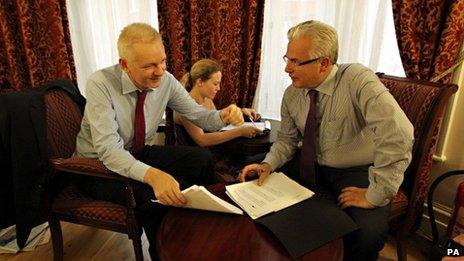
Julian Assange has been talking with his legal adviser Baltasar Garzon inside the Ecuadorean embassy
Mr Assange entered the embassy after the UK's Supreme Court dismissed his bid to reopen his appeal against extradition and gave him a two-week grace period before extradition proceedings could start.
Ecuador's president Rafael Correa has suggested Mr Assange could co-operate with Sweden if assurances are given that there would be no extradition to a third country.
Mr Assange's balcony appearance occurred as foreign ministers from the Union of South American Nations were gathering in Ecuador's second city, Guayaquil, to discuss the diplomatic situation caused by the asylum decision.
Shortly before Mr Assange delivered his speech, his legal adviser Baltasar Garzon said the Australian had told lawyers to carry out "a legal action" protecting "the rights of Wikileaks [and] Julian himself".
Mr Garzon, a former judge, did not give specific details of the action but said it would also extend to "all those currently being investigated".
Barrister and former government lawyer, Carl Gardner, said Mr Assange's options were now severely limited.
"There's no legal action he can take now. All he can do is make these public calls for people to do things he would like them to do and play a waiting game with the British authorities.
"The British government is likely to think that time is on their side. It's Julian Assange who is stuck in this embassy. It's the Ecuadoreans who have the problem of him on their hands and perhaps one of them is likely to tire of the situation before Britain."
- Published18 August 2012
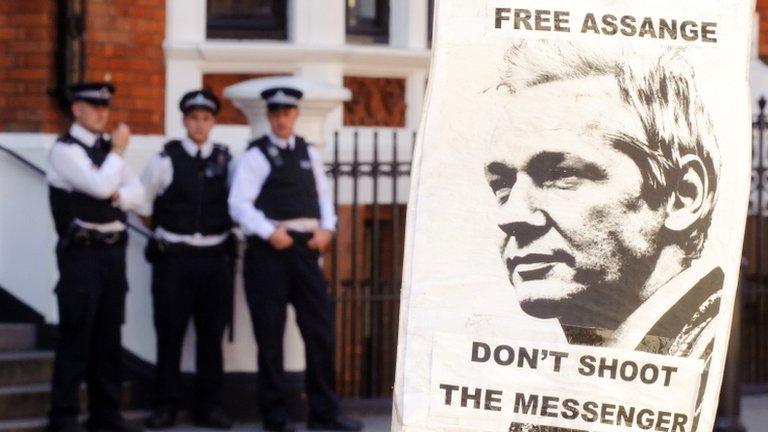
- Published18 August 2012
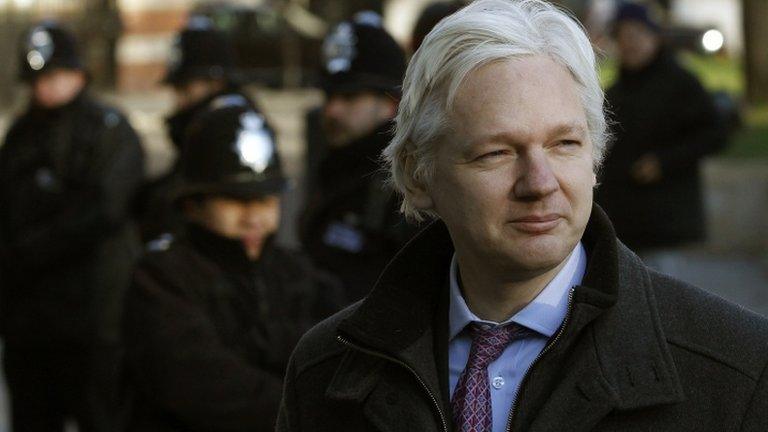
- Published18 August 2012
_afp.jpg)
- Published25 June 2024
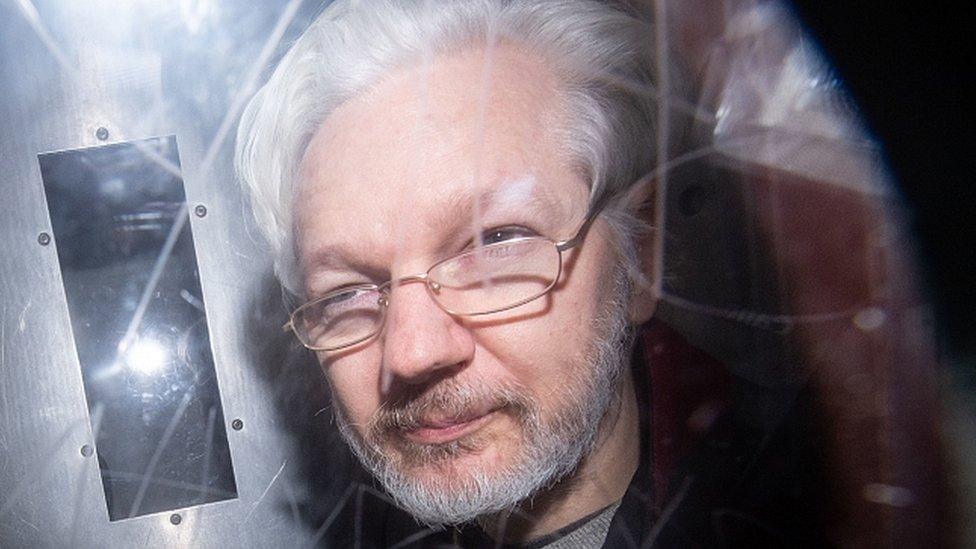
- Published16 August 2012
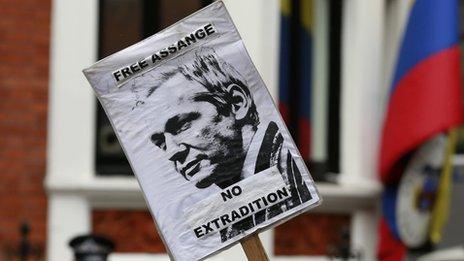
- Published2 May 2012
